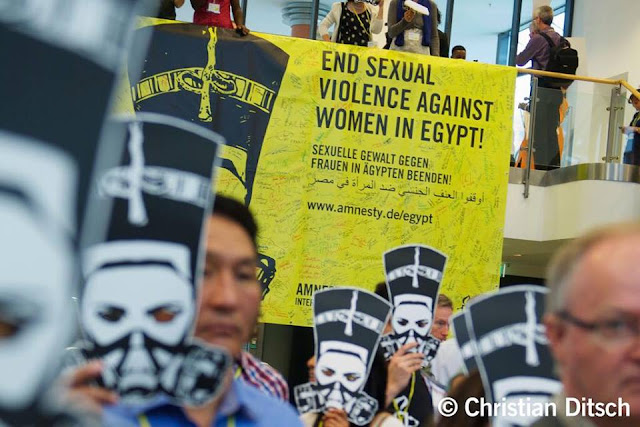Part 1
DOMESTIC VIOLENCE
On domestic violence, the most recent event and the statistic
show that between one and two thirds of women and girls have experienced some
form of violence in the home, either at the hands of their spouses or other
family members. The stigma attached to reporting domestic violence, the lack of
legislation openly elimination domestic violence, and the sub-standard
protective mechanisms in place mean that women frequently suffer abuse,
including possibly life-threatening violence, in silence for years. According
to16 Amnesty International has found that women who overwhelmed these problems
to report domestic violence face indifferent, neglectful and at times adverse
officials. There is no official information available on the number of men imprisoned
and jailed for spousal violence. None of the survivors of violence, lawyers or
NGO workers Amnesty International interviewed for this briefing had ever seen a
single case of a successful trial of an abusive partner.
The organization’s findings suggest that the occurrence of
domestic violence is also strongly linked with the deeply unfair divorce
system, which effectively convicts many women to remain in abusive marriages.

VIOLENCE AGAINST WOMEN IN THE PUBLIC GLOBE
Research into sexual and gender-based violence against women
and girls in the public globe, including sexual harassment, has also produced
deeply alarming results. Attacks against women and girls in the public area
have long plagued Egyptian society. Women and girls of all ages face sexual
harassment at every step of their daily life: in the streets and on public
transport, in schools and universities, and at their workplaces Sexual
harassment is a form of violence against women. It gives to an environment that
is threatening, aggressive, corrupting and embarrassing with the underlying
threat of further and rising violence. In this way, it can have the effect of damaging
or abolishing women and girls’ enjoyment of their vital human rights.
In recent years, sexual assaults in public have flowed, with
women and girls increasingly targeted for attack by groups of men and boys,
often in the context of protests, but also during other large public meetings.
Egyptian human rights organizations have reported they have documented over.
Part 2
Priceless knowledge and
knowledge of violence against women in Egypt, including legislatures from the
Arab Penal Reform Organization/Human Rights Association for the Assistance of
Prisoners, the Association of Women in Development, the Egyptian Foundation for
the Advancement of Childhood Circumstances, the Egyptian Initiative for
Personal Rights, the Hisham Mubarak Law Center, “I saw Harassment”, Maan, the
New Woman Foundation and Operation Anti-Sexual Harassment/Assault. In
particular, Amnesty International would like to thank NGOs and individuals who helped
the organization in classifying and questioning survivors of violence, namely:
the Nadim Center for the Psychological Rehabilitation of Victims of Violence and
Torture, the Association of Egyptian Female Lawyers, Nazra for Feminist
Studies, the Center for Egyptian Women’s Legal Assistance, the Start Advantage
for Rehabilitation and Training, Al-Shehab Institution for Promotion and
Comprehensive Development, and Women against the Coup.
Amnesty International is
concerned that a recent restriction on independent NGOs by the authorities
means that many Egyptian human rights establishments have stopped their vital
activities to promote and protect human rights in the country.
Amnesty International is particularly thankful to the women
and girls who were willing to share their experiences of violence in the home,
in the street or in prison, and of their fight to obtain justice and redress.
That is how the Amnesty International tries to release and helps women to find
the freedom in the life.





